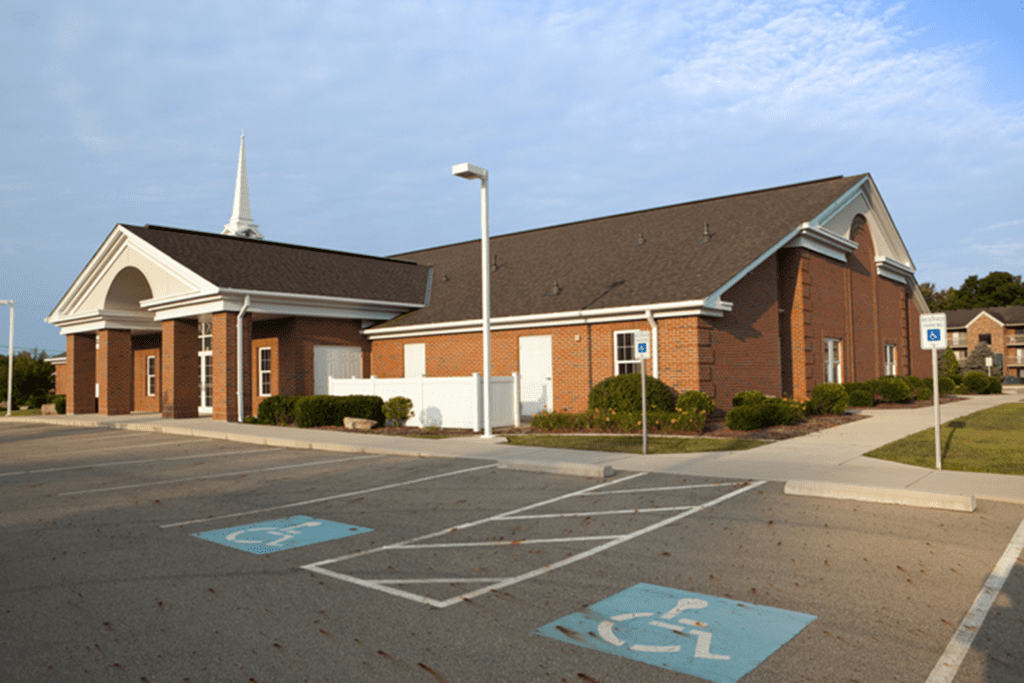
Guest Columnist, Dr. Sam Currin
Christian Action League
November 2, 2023
Too many of our churches and our youth are struggling. We do not need more surveys to confirm this—the last decades have seen an alarming drop in church attendance across the board and particularly among youth.
What has long been a problem for the shrinking liberal mainline church has now reached the evangelical church as well. Have you counted attendance in your high school department recently on a Sunday morning?
Not to mention that, even among those teens who do show up, many will never return to church after they graduate.
Equally disturbing, Lifeway Research reports that “most non-religious children are born into religious households and lose their faith while under the supervision of parents who believe that they are successfully transmitting their religious values.”
Look at your church neighborhood, your city, or even your local association of churches and compare the number of K-12 students in church with the general student population. It is a disheartening and lopsided picture.
We need to face the hard truth that we are failing rather badly in religiously engaging and educating our youth.
And then there is the declining mental health and well-being of our adolescents. No one should be surprised that the worrisome decline in adolescent well-being parallels the decline in church attendance.
Tik Tok, celebrity idol worship, drugs, alcohol, and every variety of sexual perversion (both on and off social media) now connect our youth as well as isolate them.
No need to play the blame game; there is plenty of fault to go around. The church itself bears much responsibility, especially when it has tried to accommodate the faith to the fads and fashions of the hour. We lament that our youth programs are either not meeting expectations or failing altogether.
Not surprisingly, many adult believers, not to speak of our young people, are woefully ignorant of the first principles of Christian teaching and practice.

What Can a Church Do?
Something desperately needs to be done; complacency is not an option. Many churches are struggling simply to survive; others are plateaued. Attracting and keeping youth engaged are major concerns.
Denominational leaders and church growth consultants are promoting “revitalization” ideas of one sort or another with varying degrees of success.
So, what is my prescription? Start a school in your church.
Let me be blunt—if the church is going to prevent the next generation of Christian kids from falling away in the same way the last generation of Christian kids did, we must create the infrastructure that will allow Christian kids to be educated in a different environment.
We cannot offset 35 hours a week in a secular school culture with 60 minutes on Sunday. Outsourcing the education of our kids to the state is no longer the best option, no matter how good some parents may feel about their local public schools.
The values of the church and the home must once again become the greatest influence in the lives of our children.
There will always be questions anytime a church moves into uncharted ministry waters, but the potential opportunities to extend your church’s reach into the community by having a five-day Christian education program are immense.
Listen to the moms and dads fretting over poor academic performance, insufficient school safety, bullying, immoral influences, and political indoctrination so prevalent in the public schools today. It’s no wonder that so many Christian parents want better education choices for their children.
Historic Expansion of Tuition Vouchers in North Carolina
Now for the good news. Help has arrived, courtesy of the North Carolina General Assembly, which has made educational choice economically feasible.
During the legislative session just ended, the lawmakers massively expanded the decade-old Opportunity Scholarship program and made it universal for all students in the state—some 1.4 million students.
Yes, you read that correctly. The state will pay all or part of tuition expenses for private school.
Scholarship award amounts will be staggered based on family income, with students from low and middle-income families receiving the largest amounts.
While every child benefits, the voucher program is truly an economic godsend for parents unable to afford private school tuition for their children.

Dollar Amounts are Significant
Opportunity Scholarship amounts are tied to average per-pupil state spending for public education on an annual basis.
For the 2023-2024 school year, students are eligible for scholarship grants from a low of $3,246 to $7,213 depending on family income. The grants will increase in future years.
Religious Schools are Already Getting Most of Voucher Money
Most of the scholarship money now already goes to religious schools. Statewide, more than two-thirds of private school students are now attending religious schools.
The state’s largest recipient of public scholarships was Grace Christian School in Sanford, which got almost $2.3 million and is an excellent example of what a K-12 Christian School can become.
Very small schools also participate, some with an enrollment of no more than 25 students. So do not fear to start small and, if you’re pastoring in a rural area, do not assume this program is not for your church.
Who Oversees Distribution of the Money?
The General Assembly created the State Education Assistance Authority (SEAA) to handle the scholarship program.
Schools must register with the state’s Division of Non-Public Education
before applying to the SEAA to be approved for participating in the Opportunity Scholarship program.
Parents fill out an application for scholarships. Once that’s approved, they can enroll their children in approved schools. SEAA makes payments directly to the schools each semester.
A school may charge tuition that is higher or lower than the amount provided by the public scholarships
Schools Maintain Their Christian Beliefs and Standards
Private Christian schools set their own academic, religious, and other admissions standards. A school’s First Amendment rights are fully protected and respected. The State of North Carolina does not attempt to regulate the religious philosophy, educational philosophy, or the operational policies of non-public schools.
Secular progressives fought hard to defeat vouchers for religious schools but failed because the program is extremely popular and a lot of dedicated volunteers and organizations, such as Parents for Educational Freedom in North Carolina, worked for years to bring us to this moment.
You Already Have Your Schoolhouse
Many church buildings are unused or underutilized during the school week. Do you have classrooms, food service facilities, and maybe even a gym or family life center? And no doubt you have a worship center or sanctuary for chapel programs and other events.
Thus, capital outlays could be minimal. Nonetheless, there is nothing to stop a church from remodeling or building additional facilities to accommodate more students. Sharing space with nearby churches or leasing additional space are other options.
Private schools do not have mandated class sizes, so an individual school can fashion its own philosophy on class size and student teacher ratios. Research shows that class sizes of fewer than 20 students generally yield greater gains in achievement.
Assuming a benchmark class size of 20 or even fewer, the student vouchers which are paid directly to the school should compensate for teachers’ salaries and other administrative expenses.
My advice: Dream Big. We need to dream generationally. We need to understand the world we are living in is not the world we were born into.
We can no longer afford to outsource the education and formation of Christian kids to people outside the church, not to mention our institutional inability to reach the unchurched kids.

The Benefit of a Christ-Centered Education
The landscape of secularized public education has looked desolate for quite some time, but Tar Heel parents now have an affordable choice with the availability of the expanded Opportunity Scholarship program.
Since the advent of North Carolina’s voucher program a decade ago, numerous churches across the state started schools while others have expanded existing schools.
Unsurprisingly, private school enrollment has surged and significantly outpaced the percentage growth in traditional public schools.
And the demand for both independent and religious schools is going to skyrocket. The waiting lists for admission will be long.
It is common knowledge that K-12 Christian education yields better academic results at lower costs, as well as a discipline and a moral foundation that have all but vanished from government schools.
Arguably, public education was originally established as a melting pot that would establish a common American identity. Public schools in America clearly no longer serve that purpose if they ever did.
As long as government-run schools hold a monopoly on public education funds, parents are forced to fight mostly ineffectively over what public schools teach and allow their students to do.
Christians now live in a culture that is less and less recognizably Christian and this is naturally reflected in the environment of the public schools.
School board meetings in many parts of the country have become battlegrounds as politicians, educators, and parents clash over curricula and values.
Thankfully, North Carolina now allows parents to take their children’s public education dollars to schools that match their beliefs as well as help families more effectively pass their faith on to their children.
Why would any church with adequate resources not pursue this ministry opportunity? Kingdom education is the most valuable and most important endeavor any church could invest in.
Conclusion
I conclude where I began … with struggling churches and struggling youth.
What better way to address this crisis than by establishing a Christian school as a vital part of your church’s ministry or church revitalization efforts?
Education is a powerful influence in the life of children. Children will spend 16,000 hours at school between K-12, considerably more time than in church.
Biblically, education is discipleship. It shapes what a child believes and who a child becomes. This is why your church should prayerfully consider starting a Christian school now if the Lord so leads.
Dr. Sam Currin (drstcurrin@gmail.com) lives in Raleigh, NC and is a former judge, law professor, and United States Attorney. An ordained Baptist minister, he holds degrees from Wake Forest University, UNC School of Law, and Southeastern Baptist Theological Seminary. Dr. Currin is a longtime advocate for K-12 Christian education.
